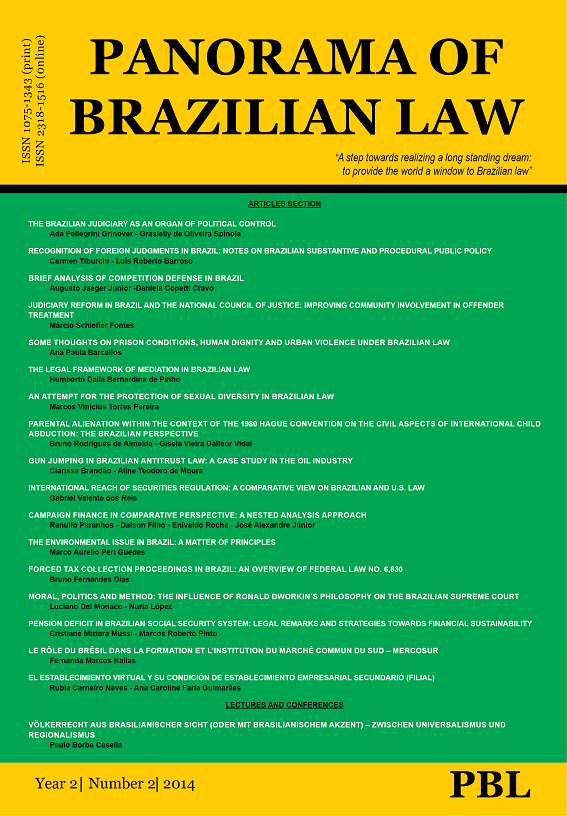FORCED TAX COLLECTION PROCEEDINGS IN BRAZIL: AN OVERVIEW OF FEDERAL LAW NO. 6,830
DOI:
https://doi.org/10.17768/pbl.y2.n2.p267-285Resumen
In Brazil, despite there being specific legislation regulating forced tax collection proceedings, these are still largely influenced by case law of national courts. We are now living in the third decade of Federal Law No. 6,830, promulgated in 1980, which aimed to guarantee greater privileges to the treasury in the course of the debt collection saga. However, the many loopholes and lacunae gaping throughout the text have left all stakeholders – government, taxpayers and judges – somewhat exasperated. Part II of this Paper analyzes the main features of forced tax collection proceedings: registration of the tax liability, presumption of liquidity and certainty; definition of “responsible” persons in terms of the law; collateralization and challenges to the debt; and the tax liability vis-à-vis other debts. A brief look is given to other pieces of procedural legislation related to tax disputes, most importantly the suits for a writ of mandamus; actions for restoration of undue payments, and actions for annulment. Finally, summaries of case law of the Superior Court of Justice are considered. These form an essential part of Brazilian sources of case law, most especially in tax proceedings.
Descargas
Publicado
Cómo citar
Número
Sección
Licencia
Panorama of Brazilian Law employs Open Journal Access policies.
Authors are fully and exclusively responsible for their submissions.
Authors who publish with this journal agree to the following terms:
- Authors retain copyright and grant the journal right of first publication with the work simultaneously licensed under a Creative Commons Attribution-NonCommercial-ShareAlike 4.0 International License that allows others to share the work on a non-comercial basis with an acknowledgement of the work's authorship and initial publication in this journal and indicating if any changes were made. If you remix, transform, or build upon the material, you must distribute your contributions under the same license as the original.
- Authors are able to enter into separate, additional contractual arrangements for the non-exclusive distribution of the journal's published version of the work (e.g., post it to an institutional repository or publish it in a book), with an acknowledgement of its initial publication in this journal.

